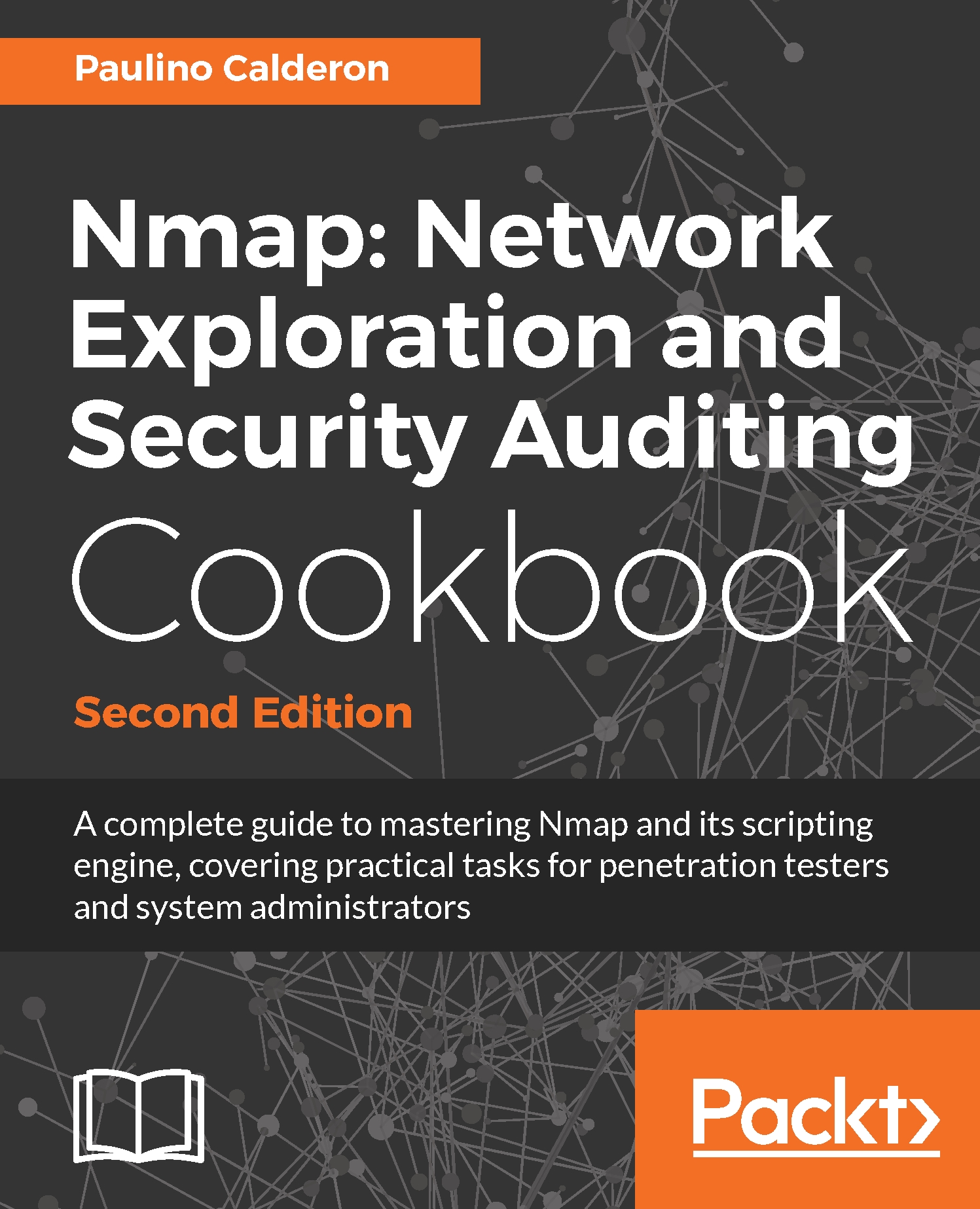In this chapter, we will cover the following recipes:
- Building Nmap's source code
- Finding live hosts in your network
- Listing open ports on a target host
- Fingerprinting OS and services running on a target host
- Using NSE scripts against a target host
- Reading targets from a file
- Scanning an IP address ranges
- Scanning random targets on the Internet
- Collecting signatures of web servers
- Monitoring servers remotely with Nmap and Ndiff
- Crafting ICMP echo replies with Nping
- Managing multiple scanning profiles with Zenmap
- Running Lua scripts against a network connection with Ncat
- Discovering systems with weak passwords with Ncrack
- Launching Nmap scans remotely from a web browser using Rainmap Lite



